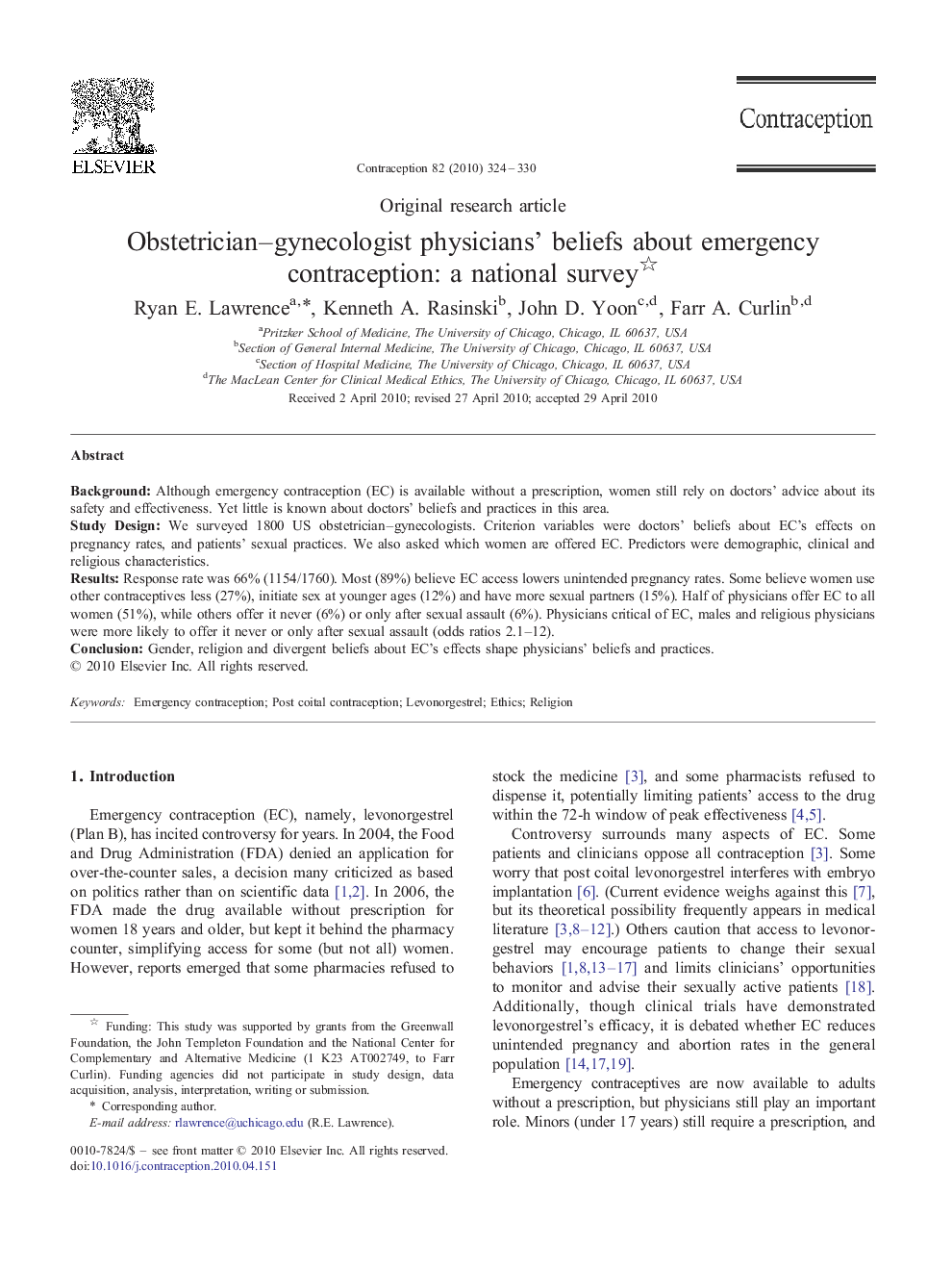| Article ID | Journal | Published Year | Pages | File Type |
|---|---|---|---|---|
| 3914504 | Contraception | 2010 | 7 Pages |
BackgroundAlthough emergency contraception (EC) is available without a prescription, women still rely on doctors' advice about its safety and effectiveness. Yet little is known about doctors' beliefs and practices in this area.Study DesignWe surveyed 1800 US obstetrician–gynecologists. Criterion variables were doctors' beliefs about EC's effects on pregnancy rates, and patients' sexual practices. We also asked which women are offered EC. Predictors were demographic, clinical and religious characteristics.ResultsResponse rate was 66% (1154/1760). Most (89%) believe EC access lowers unintended pregnancy rates. Some believe women use other contraceptives less (27%), initiate sex at younger ages (12%) and have more sexual partners (15%). Half of physicians offer EC to all women (51%), while others offer it never (6%) or only after sexual assault (6%). Physicians critical of EC, males and religious physicians were more likely to offer it never or only after sexual assault (odds ratios 2.1–12).ConclusionGender, religion and divergent beliefs about EC's effects shape physicians' beliefs and practices.
